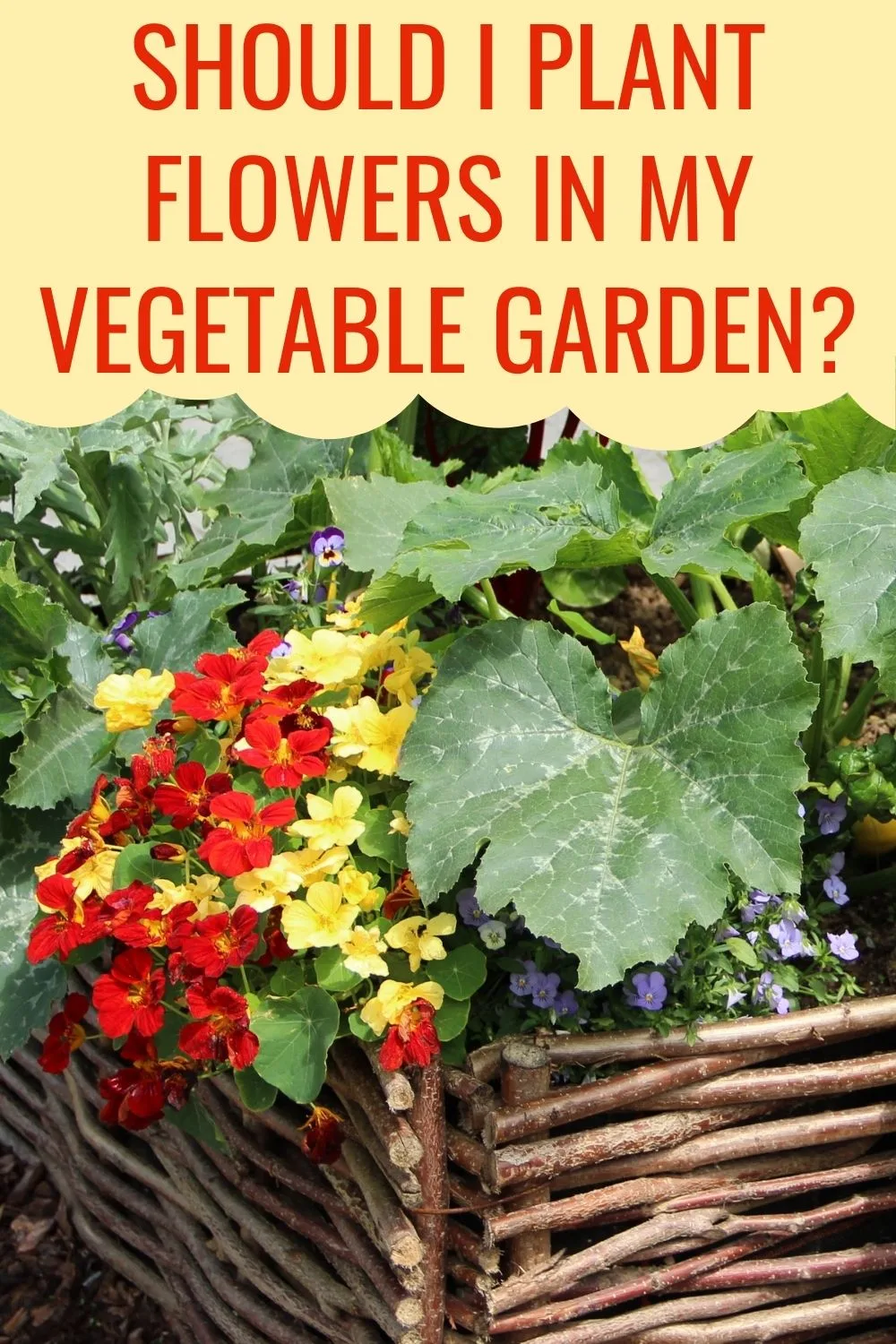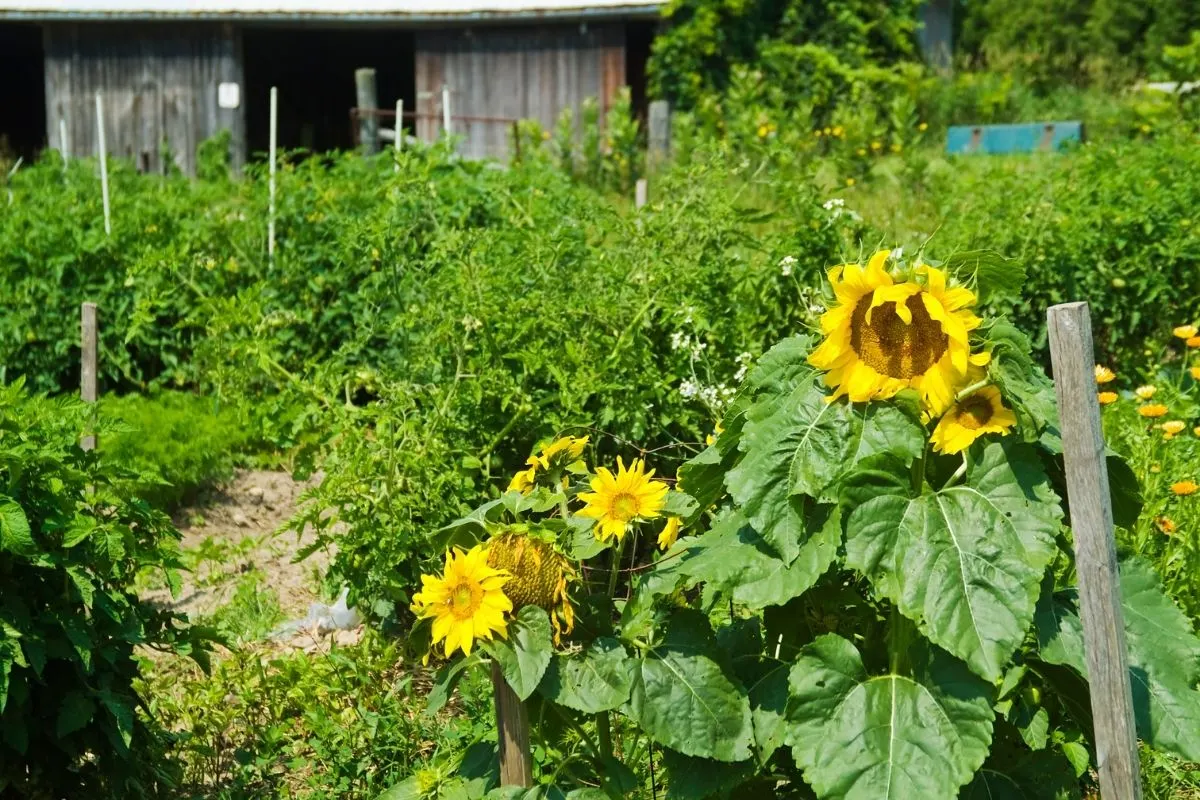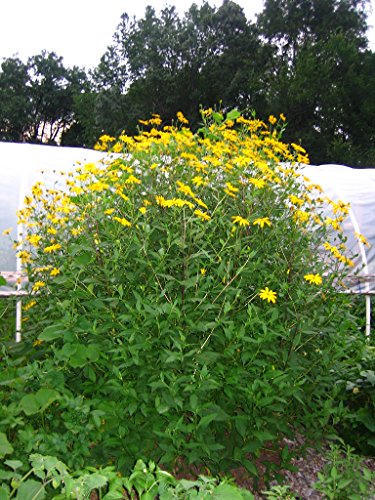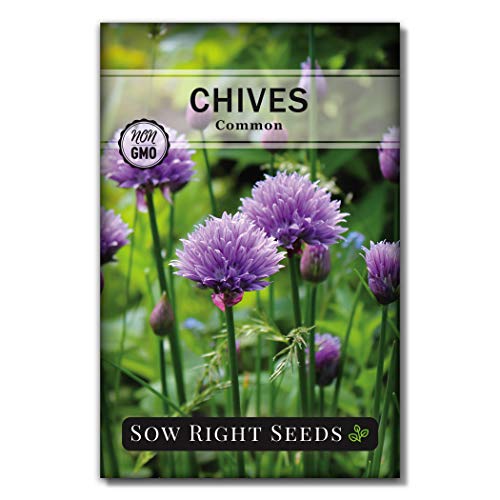Should I plant flowers in my vegetable garden? What do you think? In ancient history, people grew plants for the practical purpose of providing food. When flowers grew naturally alongside these plants, gardeners did not uproot the flowers. But as civilizations progressed, gardeners started to divide properties into vegetable gardens and flower gardens. I’m happy to see that recently many gardeners have started to intermingle flowers and food plants again.
Planting flowers in your vegetable garden has beneficial effects on your veggies. They repel some insects but also attract beneficial insects that might otherwise have eaten the vegetables, creating ideal companion plants. Flowers can provide additional nutrients, shade, and stakes for climbing vegetables and they also attract pollinators.

Many people live on smaller properties with little room for a division of garden areas, so it makes good sense to add flowers to the garden to increase the aesthetics while still having functional food plants.
Are Flowers Good Companions For Vegetables?
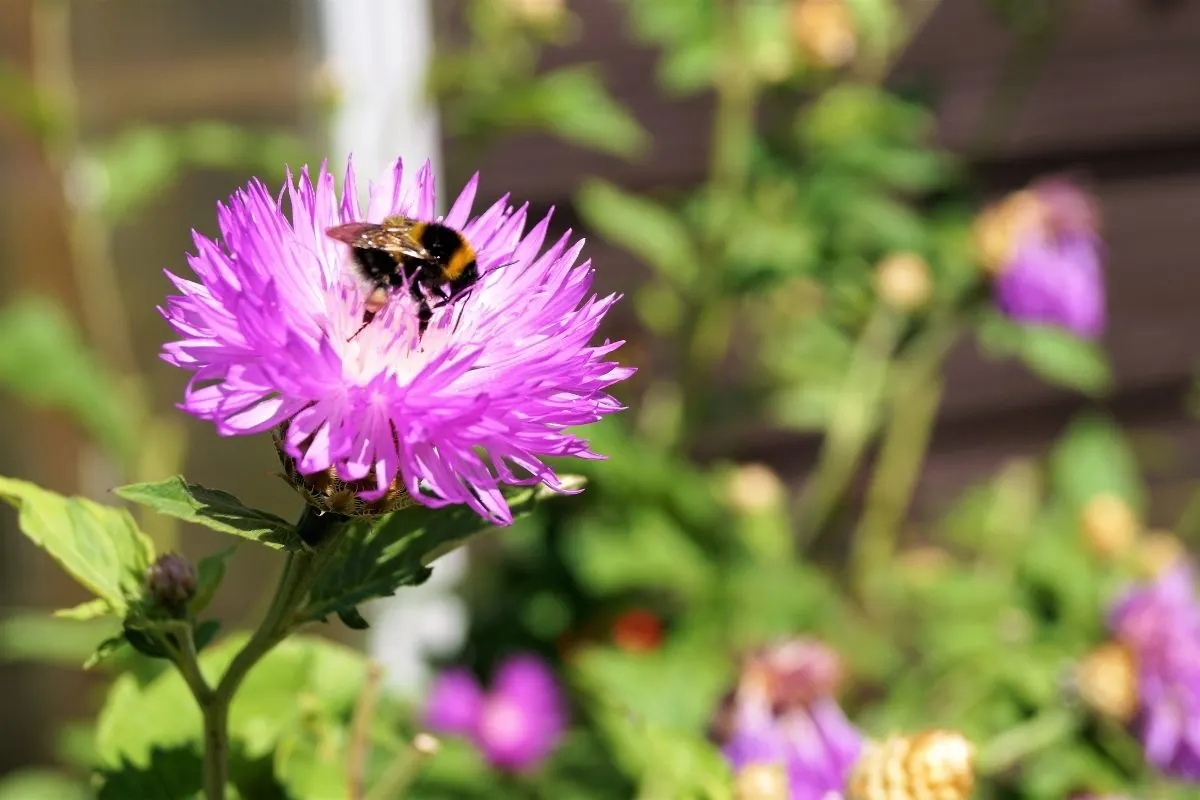
Flowering plants may have properties that are beneficial to vegetables, promoting their growth and preventing attacks by insects. Some flowers can be planted as a trap crop, so that damaging insects will feed on the flowers, instead of your veggies.
Flowers with large, strong stems can be used as stakes for creeping food plants.
Flowers naturally attract pollinators such as bees which help pollinate vegetables that develop fruit like cucumbers, squashes, and pumpkins.
Some flowers can add minerals to the soil that assist the growth of vegetables.
And some flowers can be used in cooking. Plant a few of these edible flowers to add color to your salads and sandwiches:
- dahlias
- cornflowers
- sunflowers
- zinnias
- lavender
- marigolds
- pansies
- nasturtiums
Plant both perennial flowers and annual flowers, for a variety and to make it easier to maintain beautiful color in your vegetable patch.
But there are also flowers that are greedy feeders and can be harmful to vegetables as they may use up all the nutrients and water in the soil, leaving none for the food plants.
Examples of heavy feeders are:
- lupines
- lilies
- peonies
- phlox
What Flowers To Plant In A Vegetable Garden?
It is essential to know which flowers should be combined with which vegetables to maximize companion planting benefits.
You’ll want to add many types of flowers for added interest:
- bright colors
- pastel colors
- lacy foliage
- tall flowers
- ground covers
- flower borders
- seasonal flowers
Planting marigolds in the vegetable garden
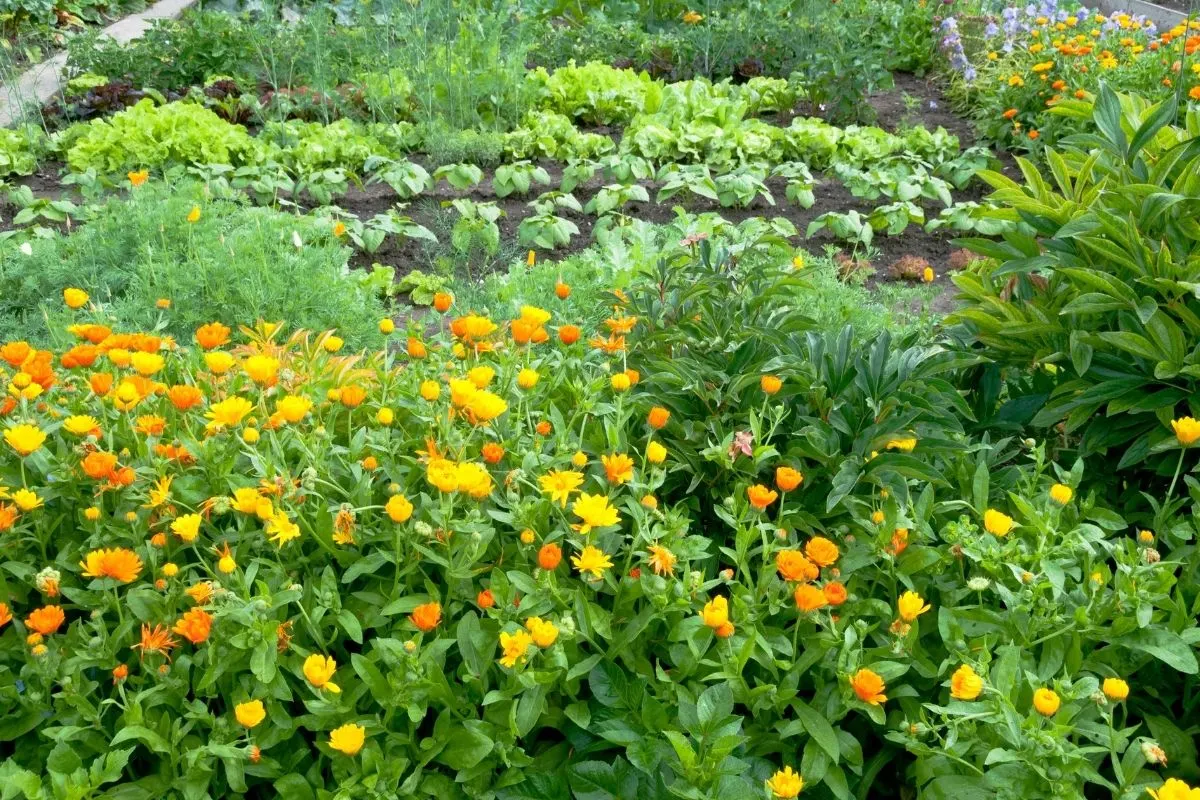
There are numerous different types of marigolds that can each be beneficial for vegetables. African marigolds contain pyrethrins which are natural insecticides. These marigolds have been proven to repel slugs, nematodes, and other garden pests. They may be used to protect tomatoes against tomato hornworms.
Marigolds have a strong perfume that may mask the scent of the vegetables. Some scientists believe that this aids in protecting vegetables from pests.
French marigolds are commonly chosen to plant with vegetables. They are excellent companion plants for beans, squashes, potatoes, and broccoli. They attract bees that help pollinate vegetables.
In addition, marigolds attract helpful predator insects such as ladybirds and lacewings. These predators feed on aphids and other insects that attack crops.
The flowers of French marigolds are edible and may be added to salads or used as decorations on cakes or desserts. They can be used as a natural yellow food coloring.
Marigolds are easy flowers to grow and will re-seed themselves for many years in a row. This feature makes them very attractive flowers to grow with vegetables as they require minimal care.
Is catnip a good companion plant?
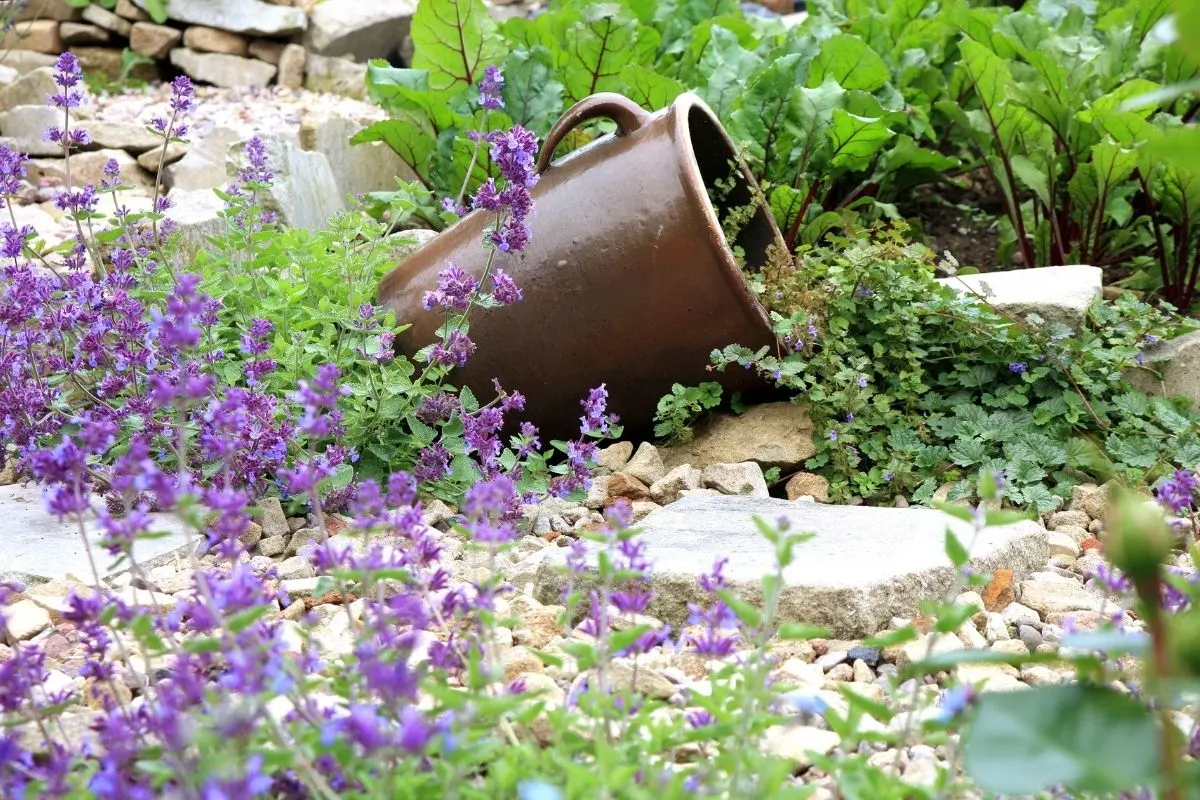
Catnip (Nepeta) is a herb that produces attractive purple-blue flowers and aromatic oils useful for repelling garden pests. Catnip has been shown to repel:
- Flea beetles
- Ants
- Aphids
- Many types of beetles
- Weevils
- Cockroaches
- Moles and voles
Catnip can be planted with squash, cauliflower, broccoli, collard greens, potatoes, and beets.
If you are plagued by biting flies and mosquitoes while you garden, catnip could be the answer to your problems. Just rub some leaves on your skin, and the smell will repel these irritating insects.
Planting nasturtiums in the vegetable garden
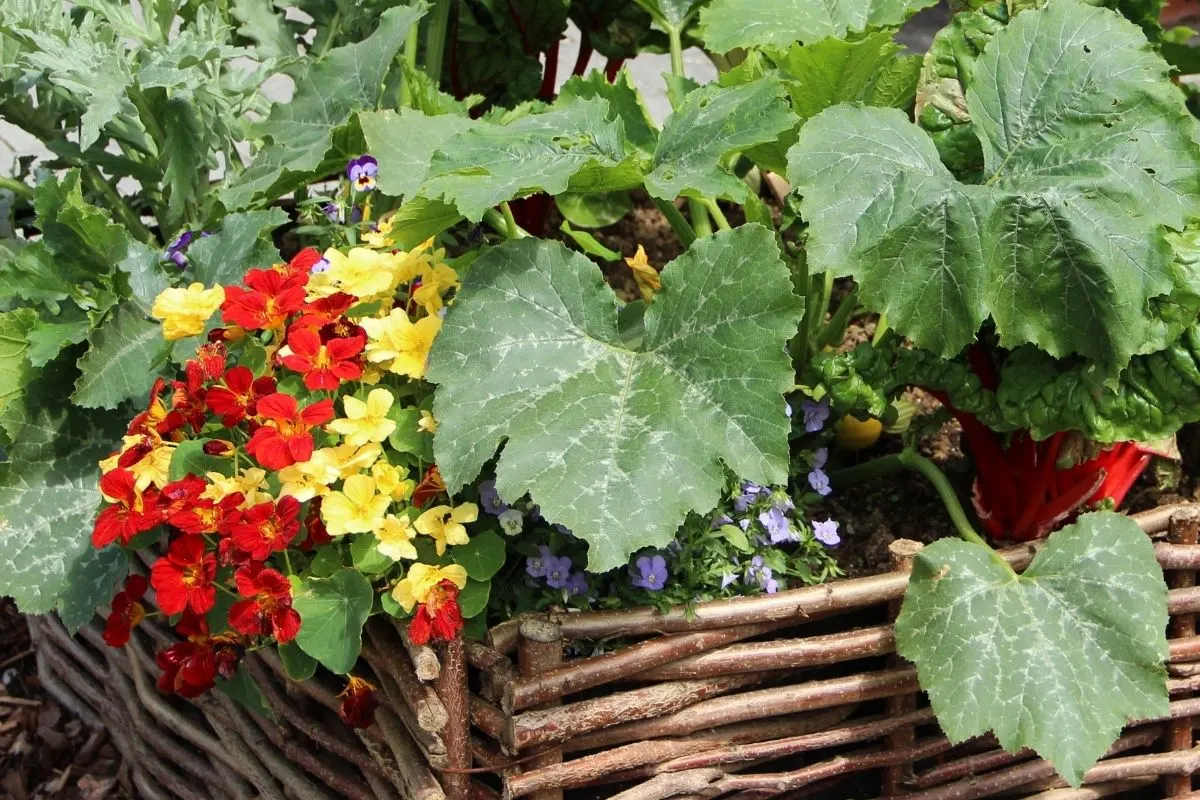
Nasturtiums come in colors that range from yellow-orange to red. They repel beetles, squash bugs, aphids, and other insects. Nasturtium flowers can be added to salads. The red flowers have a hot spicy, or peppery flavor, and the paler ones have a milder taste.
The stems and leaves are beneficial as they have a high vitamin C content and contain a natural antibiotic. The roots are not edible and should be avoided. Nasturtiums produce seeds that are called capers which are edible and can be pickled.
Nasturtiums are another easy flower to grow, demanding very little attention. They re-seed themselves, coming up year after year. Learn more about growing nasturtiums.
Should you plant sunflowers in the vegetable garden?
Sunflowers are a magnet for bees which help pollinate vegetables, and their cheery blooms provide shade for plants like lettuce, spinach, and chives. They are also useful as a windbreak if they are planted a short distance away from the vegetable garden.
Sunflowers are not only very attractive but their stems can be used for creeping plants that need stakes to climb. Cucumbers, beans, peas, and squash can use sunflowers as a trellis.
They are also good companions for corn as they increase the nitrogen content in the soil and help break up the ground for the corn roots.
The flower heads can be harvested, and the seeds used as food. They are not flowers that last for very long but could be grown in a vegetable garden for short periods.
Surprisingly, Jerusalem artichokes are a type of sunflower that produces edible fruit that many people enjoy. Adding this plant to your vegetable garden provides you with an additional crop.
Sunflowers play a role in phytoremediation, which is the removal of toxins, metals, and pesticides from soil.
Are herbs good companions for vegetable gardens?
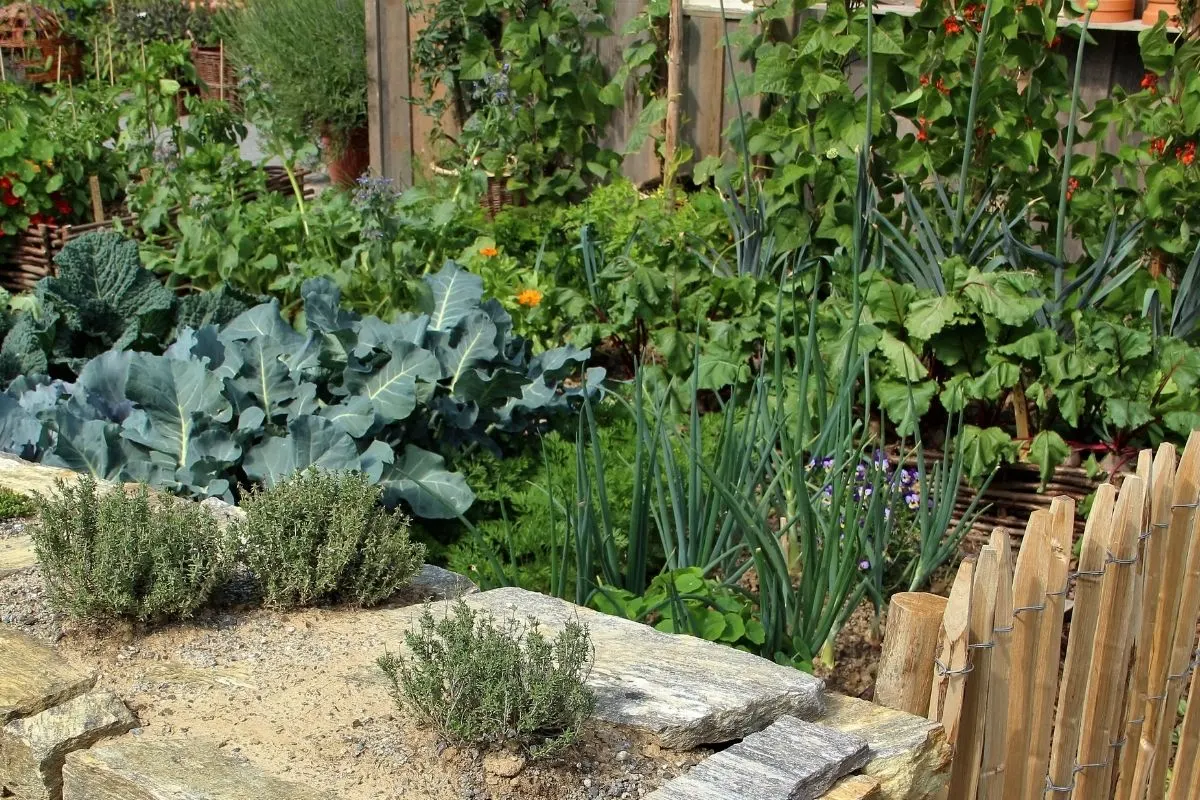
Many herbs such as lavender and rosemary have attractive flowers that can add to your vegetable garden’s aesthetics. Many herbs also have insect-repelling qualities and can be used in foods and herbal medicines.
Lavender, dill, and rosemary are good companions for cabbage, broccoli, and cauliflower as they combat the cabbage butterfly caterpillars.
Chives have delicate purple flowers and a strong scent that confuses moths and butterflies so that they do not lay their eggs on your vegetables. They protect strawberries from disease and increase the crop yield.
Should I Plant Flowers In My Vegetable Garden? Conclusion
You should consider planting flowers in your vegetable garden as there are many benefits to this practice. Research the best flowers as companions for the vegetables you are growing. Avoid flowering plants that are heavy feeders that may compromise your vegetables.
